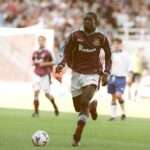Any gathering of cyclists leads to the exchange of typical social pleasantries. But you will also hear, in amongst the casual greetings and work or life updates, the occasional expression that leaves you perplexed. Why is that very fit-looking cyclist complaining about how bad he feels and how little he has been riding? And some guy over there is talking about a loop with a new rider and saying it is “easy” and “only a two hour ride” when you know it is terribly hard and only takes two hours if you are in a car. What is going on?
This is a phenomenon of cycling group-speak – understate to the point of misrepresentation. Really a form of modesty, that humble intent breaks down when it comes to ride descriptions. For some reason, cyclists seem incapable of accurately assessing a ride’s difficulty.
Parsing the Cyclist Dialectic
The cyclist in either case is, however, not lying. Rather, it is more fundamental than that – think 1984 and double-think. Orwell talked about the ability to hold two mutually inconsistent beliefs without dissonance or dishonesty – saying and believing that two plus two equals five even while simultaneously knowing that two plus two equals four. It is an internal, inconsistent dialectic. Cyclists, possibly through years of pushing their physical limits, have unconsciously adopted this very technique. So they can say, and believe, that they are not fit or that the coming ride is only two hours even while knowing without question that they are crazy fit and that the ride is a leg breaker.
What follows is a brief guide to parsing the double-speak and piercing into the true meaning of cycling group-ride lingo.
“I Haven’t Been Riding Much”
Anytime two or more cyclists get together, the talk will inevitably turn to how much everyone has been riding. Among cyclists, it is considered bad form to brag about how much you have been training (or how good you feel, or really almost anything positive). So when asked if she has been training, the average cyclist will inevitably downplay her schedule, claiming to have been tired, overworked, anything but rested, trained and fit. In reality, she has been ruthlessly preparing for an event next weekend and wants to test her legs out on this unsuspecting group. So the active translation of “I haven’t been training” is “I haven’t felt this good all year and I will attack relentlessly until you turn inside out.”
In contrast, if someone actually admits to feeling good, either they are going to get dropped on the first freeway overpass or you better look out for a pummelin’. Note, however, that such a positive statement is unlikely. The rule seems to be: “If you can’t say anything humble than don’t say anything at all.” To help circumvent this tendency towards modesty, a little pre-ride reconnaissance is in order. But not of the route — of the riders.
Humble Fitness Sayings to Be Wary Of
“I just want to ride steady.”
“I’m just getting over a cold.”
“I haven’t been able to ride in a week.”
“My legs feel heavy.”
“I didn’t get any sleep last night.”
“This Ride Is a Piece of Cake”
So now you should have a good sense of what kind of riders are on the ride and also what kind of fitness they are bringing with them today. But before you start make sure to confront the next critical piece of potential cycling misinformation: the off-the-cuff ride description.
While you may have navigated around the land mines of humble fitness sayings, you may still be blindsided by wildly inaccurate descriptions of the coming ride. You might hear a rider casually discussing the length of the route, or the amount of climbing. Another might mention that the pace will be “easy”. Do not take these statements at face value.
As a cyclist new to the area, make sure you are at least peripherally aware of what you are getting into. So don’t just rely on one offhand comment about the climbing, length, speed, aggressiveness, or other critical factors of the ride. Without the full context of where you will be riding and, particularly, how fast the pace will be, a new rider can inadvertently get in over his or her head.
Armed with answers to your questions, you will be well on your way to fully appreciating what you are getting into. Another important pre-ride tip: look at the riders assembled for the ride you plan to do and make sure that you are on the same page with them before you roll out.
Suspect Ride Descriptions
“There isn’t much climbing.”
“Probably like two hours?”
“You don’t need to bring any food.”
“The group will just roll steady.”
Critical Ride Questions
How many miles is it?
How many climbs are there?
How long are the climbs?
What is the pace going to be like?
Will there be any stops for water or nature breaks?
Is there anywhere to get food?
Is this a no-drop ride?
Will there be regrouping?
“Hold Your Line”
In a similar contradictory dialectic, new riders make it a habit to yell “watch your line” constantly in races, while blundering through the turns like a blind water buffalos. While not heard at the beginning of a ride, this expression will inevitably crop up at some point so it is important to understand what it means. Even more important is understanding what the rider saying the phrase means.
Generally, “watch your line” is intended to be a warning to other racers to ride a consistent and predictable line through a turn. In reality, “holding your line”, at least in the sense that the expression is used here, is a myth. It is each rider’s responsibility to protect his or her front wheel. Beginner racers cling to the myth of the line believing that it somehow makes them more “pro” to yell at other riders. In an elite race, oddly, no one ever yells “hold your line.”
This is not to say that one should ride erratically, it is simply to say that bike racing, by its very nature, is competitive, chaotic and unpredictable. By yelling hold your line, the racer is saying, in effect, that your line impedes my line and is preventing me from winning. But it is unreasonable to expect the other racers to behave in a way that favors you and allows you to win.
Instead of expecting others to race to your strengths, you have to pay attention to the whole narrative of the race, where the riders are in front of and behind you, what course conditions are like ahead, and plan your position to best take advantage of the moving and evolving story. So don’t yell “hold your line” – it will only mark you as inexperienced and incapable of making your own luck and forging your own race.
Putting Your Translations Into Action
Now you have a better understanding of three common type of cycling expressions. You may notice a trend – they all involve an incomplete dialectic. That is, the speaker is holding to contradictory thoughts in his head at the same time without resolving the contradiction. Your task as a new cyclist is to force the speaker to complete the dialectic and resolve the contradiction. This resolution is the only way that you can truly know what you face on the ride ahead.



